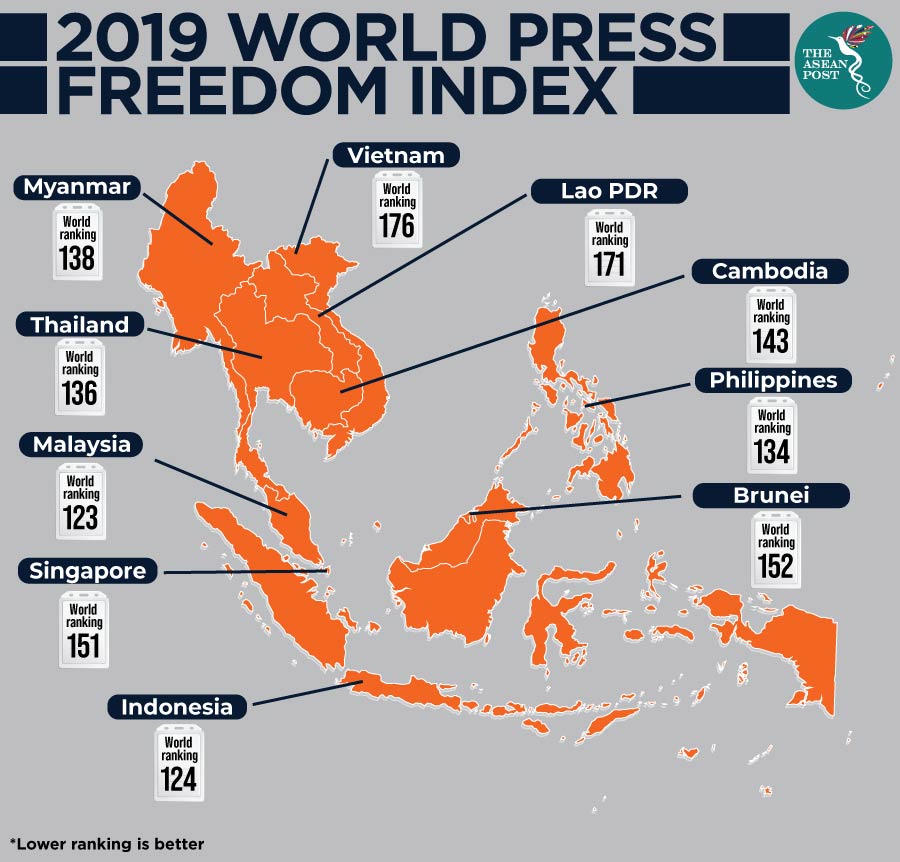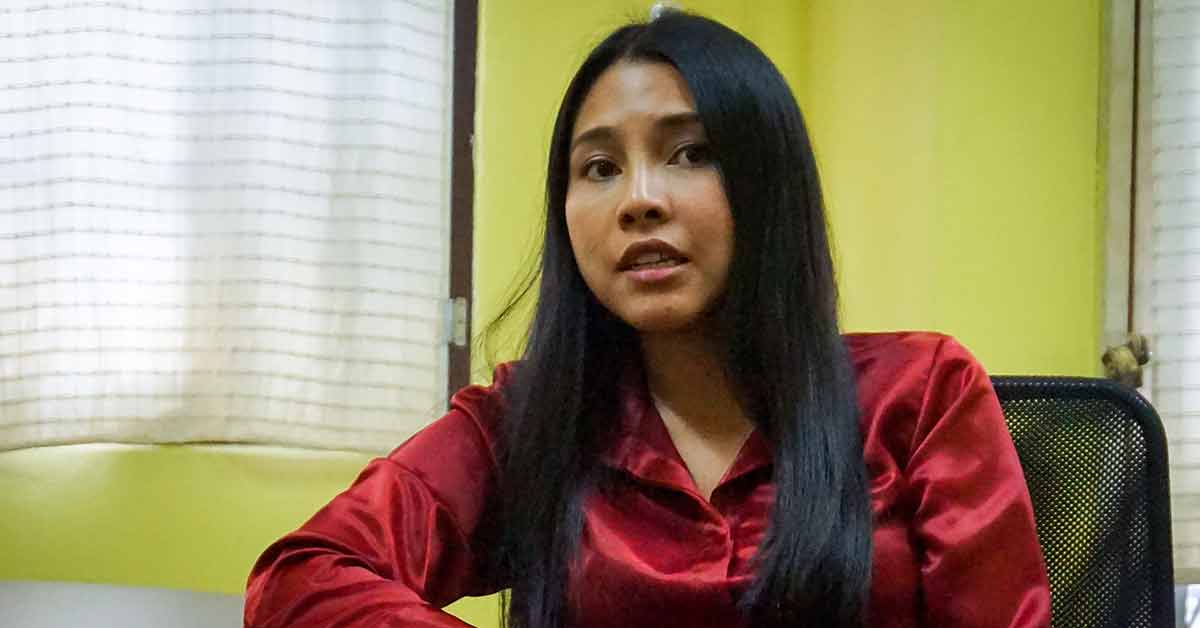Last Thursday news reports broke about a Thai journalist who had been sentenced to two years’ imprisonment for defaming the owner of a poultry farm via a tweet. A court convicted Suchanee Cloitre in December for a tweet referencing a dispute over working conditions at a chicken farm owned by the Thammakaset company.
While the journalist is currently out on bail, that matter brought to light an important – if not accusatory – issue regarding Thai journalists and journalism at large in the country. Suchanee had alleged that "there is a high level of self-censorship in Thailand" among journalists reporting on sensitive topics like human rights and politics.
In all honesty, the whole ASEAN region has never really been stellar when it comes to media freedom. Rankings like the Reporters Without Borders’ World Press Freedom Indices have painted a consistently, somewhat gloomy picture of media freedom in all 10 member countries. It is not too much a stretch of the imagination to believe that reporters working in these countries are forced to exercise some form of self-restraint.
This matter to a certain extent could be excused in countries like Lao, Vietnam and even Brunei where the media is expected to play a different kind of role. Nevertheless, in self-proclaimed democratic countries like Thailand, the press is expected to play an important role as the “fifth estate” – a watchdog role and one where the media must be allowed to report on abuse of power especially when it comes to “sensitive topics like human rights and politics”. Without press freedom, however, one questions how the press in these democratic countries are able to play this role effectively.
In the 2019 World Press Freedom Index, Reporters Without Borders noted that since the military junta took control of the country following the 2014 military coup, Thailand’s journalists and bloggers have been “spied on and censored”.
“This ubiquitous and all-powerful junta has constantly hounded outspoken journalists, summoning them for questioning, detaining them arbitrarily and driving at least 10 of them to flee the country. Any criticism of the junta is liable to lead to violent reprisals made possible by draconian legislation and a justice system that follows orders,” Reporters Without Borders noted in its report.

Post-coup
The March 2019 election, however, did not completely eradicate the issue of press freedom in Thailand.
In an open letter to Prime Minister Prayut Chan-o-cha, Committee to Protect Journalists (CPJ) Executive Director, Joel Simon urged the prime minister and his administration to fully restore press freedom in Thailand and ensure that journalists are able to report freely without fear of official reprisal.
“As Thailand transitions to democracy, you and your elected administration have a historic opportunity to right the many wrongs committed against the press during your previous tenure as a coup-installed military leader,” the letter read.
The CPJ went on to urge Prayut’s administration to drop all pending legal complaints and cases filed against journalists and their news organisations under the previous military rule, and to end the use of “attitude adjustment” harassment against critics.
Another point the CPJ raised was the amendment or abolishment of the 2016 Computer-Related Crime Act.
“This law gives authorities overbroad powers to restrict online expression, impose censorship, and enforce surveillance, and extends enforcement of the draconian lѐse majesté provision online. It is a danger to both, journalists and citizens trying to access or comment on news developments, and should be either overhauled to explicitly protect free expression or scrapped altogether.”
In all fairness, Reporters Without Borders have recorded improved media freedom scores for Thailand over the years. In 2017, Thailand was placed 142nd out of 180 countries. Then, in 2018, Thailand was ranked 140th out of 180 countries. Most recently, in 2019, Thailand was placed 136th out of 180 countries.
Press freedom in Thailand continues to improve over the years, but the country’s ranking is still too low for it to be given much praise. While we wait for the 2020 Reporters Without Borders ranking index to be revealed, it is hoped that Thailand does what’s necessary to ensure real improvements in its treatment of journalists and the media in general.
Related articles:
